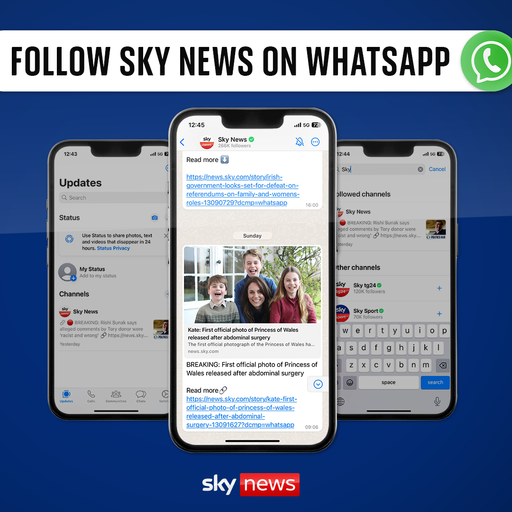The surprise election announcement led to a slow start to the campaign in many ways.
But the speed of digital allowed the online campaign to be up and running within minutes – in fact, as we will see, the parallel campaign was already underway.
Each election, we are talking about the largest digital election. It’s not false. With five years between each vote, the platforms are moving forward – last time, Tic Tac wasn’t the giant he is today, for example.
But it’s different, for a very old reason: money. A lot.
But first, the launches. Although it exercises apparent control, the Conservative the efforts were dull.
Compare this to Workwho released this great video in just a few minutes.
The lackluster nature of the Conservative launch was surprising to say the least.
“It’s borderline negligent for a modern digital campaign where the first 24 hours are a real opportunity to build momentum,” Sam Jeffers, executive director of Who Targets Me, which tracks political advertising, told Sky News digital.
It highlights how similar launches by Democratic candidates in the United States compare.
Last general election: Sunak asks ‘who do you trust?’
“As it stands, only one of the parties seemed ready for digital campaigning, and they weren’t the ones in control of the schedule. The Conservatives have time to fix that, but not much.”
The Conservatives’ weak launch also meant their message was overwhelmed with memes, like this one:
A little later the Tories had, to a certain extent, resumed their action.
The nature of digital means you can see strategies evolve in almost real time.
Back to money.
Spending limits have been raised – almost doubled from £19.5m to £35m.
Only a limited portion of this can actually be spent on old-fashioned campaigning, as this infrastructure is further limited by organizational capacity – the number of volunteers and door-to-door canvassers.
But you can distribute it very easily digitally. And it already seems to be happening.
Digital spending is on track
“In 2019 we saw over £10m spent on Google and Facebook during the election campaign, but since January we’ve already seen just under £5m spent on Meta advertising alone – and that before the campaign even kicked off,” says Kate. Dommett, professor of digital policy at the University of Sheffield.
Learn more about the general election:
What happens now that an election has been called?
Find your new constituency and how it has changed
How boundary changes make Starmer’s job harder
MPs who withdraw
Professor Dommett says campaigns will combine this type of paid advertising with other methods, including new tools to combine digital and online campaigns.
And that’s before we get into influencers and other new ways to reach a consumer audience that is the most fragmented it’s ever been.
“What is likely is that we will see parties from all walks of life trying to achieve newer means than ever before,” says Professor Dommett. “Using WhatsApp messages, essential online advertising, social media influencers and their own media outlets. messages alongside the now-familiar door-to-door conversations, flyers and public events.
You could avoid previous elections by not turning on the television or radio.
But this time, if you have a phone, there will be no escape. Welcome to the must-win election.
Digital is the campaign’s key battleground – and I’ll be looking at it closely over the next six weeks.



